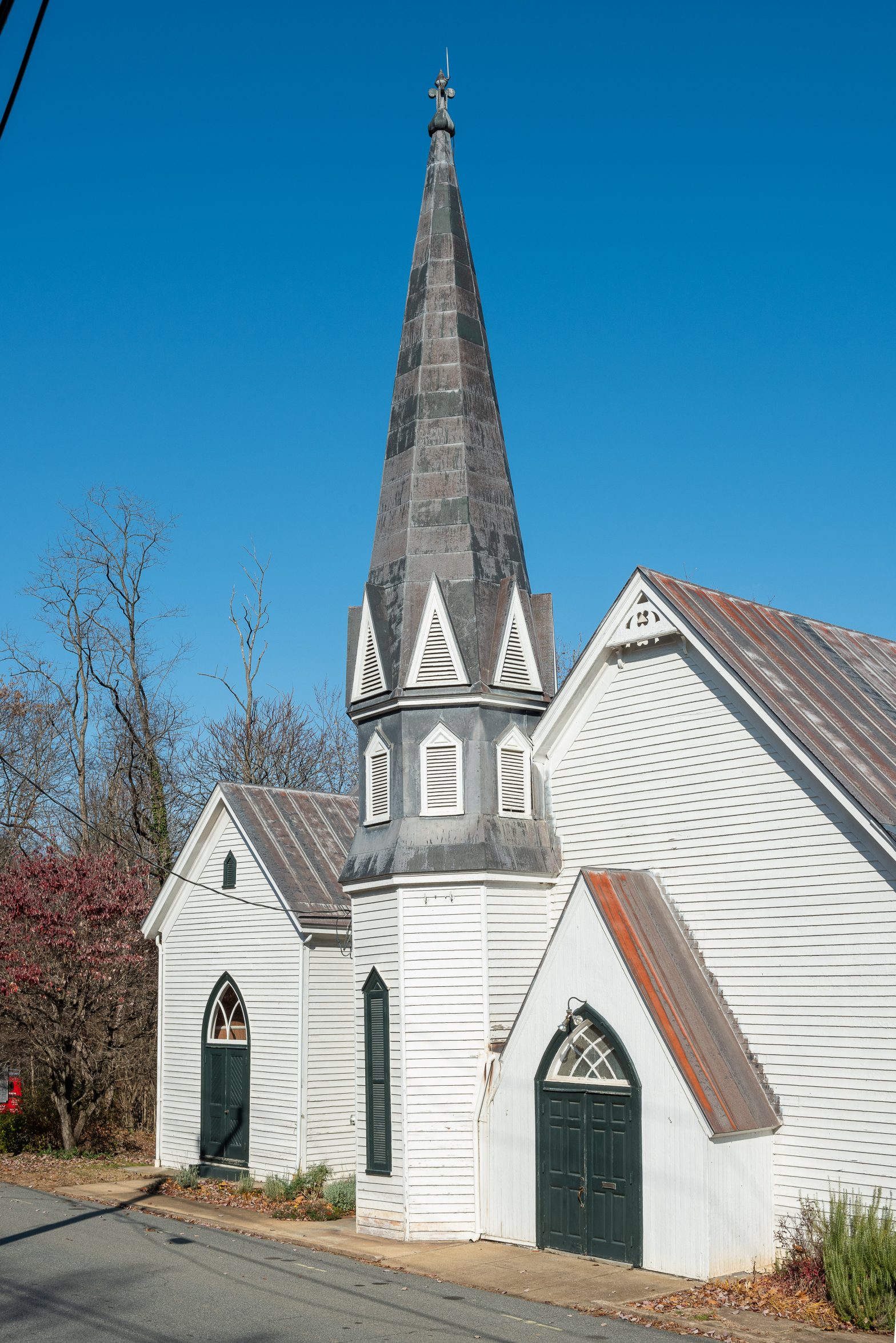An organization that seeks to foster appreciation for older buildings in the hopes of preserving them for the future now owns a significant Woolen Mills landmark.
“The 1887 Woolen Mills chapel is one of the earliest still surviving historic houses of worship in the city,” says Genevieve Keller, president of Preservation Piedmont, which will fundraise to pay for chapel repairs, and develop a plan for the building.
In the meantime, the Rivanna Baptist Church will continue to use the space for Sunday services, and “from time to time the chapel will be available for events and functions, as the church and building rehabilitation schedules allow,” Keller says.
According to a March 2020 C-VILLE article, neighbors had been making minor repairs to the street’s “signature building” until about eight years ago, when a group of volunteers created a nonprofit to take control of the building and raise money for restorations. Now, however, Preservation Piedmont has stepped in.
“Preservation Piedmont has never owned or sought to own property previously, but with the dissolution of the Woolen Mills Chapel Foundation, [we] accepted the chapel because it is a nonprofit 501(c) group and closely aligned in a preservation mission,” says Keller.
The chapel is one of 104 contributing structures in the Woolen Mills Village Historic District, which was listed on the National Register of Historic Places in 2010. “Founded as a mill village in the early 19th century to take advantage of the water power generated by Moore’s Creek and the Rivanna River, the Woolen Mills Village Historic District is now almost exclusively residential,” reads the nomination form for historic designation.
Preservation Piedmont’s acquisition could signal a more secure path for a 19th-century structure in a location that’s seen significant investment in the 21st century. The chapel is just a quarter mile down East Market from the recently redeveloped Woolen Mills, which for many years stood mostly vacant and was prone to ruins.
In late 2017, developer Brian Roy began transforming the site into what is now the mixed-use Wool Factory, home to an event venue and “culinary experiences,” among other things. This area is a major anchor, but it’s within Albemarle, and Roy agreed to limit vehicular access from East Market.
“Having a group like Preservation Piedmont dedicated to historic preservation should allow for best practices and more creative solutions to ensure that the chapel lasts and stays useful well into the future,” Roy says.
Roger Voisenet lives just down the street, and says he was caught off guard by the transfer, but that Preservation Piedmont has access to resources to maintain the structure and prepare it for the future.
“In talking to neighbors, we think there is potential to expand the use of the chapel to include past uses such as theater presentations and possibly even a store in the basement, where vintage clothing could be exchanged or sold,” Voisenet says.
